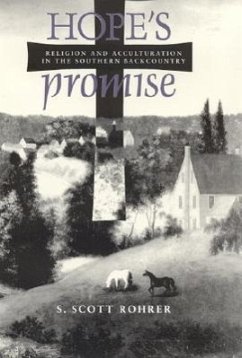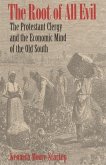A fresh perspective on the interaction of religious ideals and social change in rural settlements of the Moravian colony of Wachovia. Hope's Promise describes the complex process of assimilation that occured among multi-ethnic groups in Wachovia, the evangelical community that settled a 100,000-acre tract in Piedmont North Carolina from 1750 to 1860. It counters commonplace notions that evangelicalism was a divisive force in the antebellum South, demonstrating instead the ability of evangelical beliefs and practices to unify diverse peoples and foster shared cultural values. "A fine piece of scholarship--deeply researched and beautifully written."--Randy Sparks, author of On Jordan's Stormy Banks: Evangelicalism in Mississippi "A careful, perceptive, imaginative account of religious acculturation. . . . The Moravians did not really 'decline' from some Old World set of beliefs but rather absorbed new ideas, triangulated themselves between piety, the world, and ethnic attitudes, and--with their core religious beliefs as a sort of gyroscope--journeyed along across a century of time to become a different people by 1850, but still recognizably distinct and set apart by their religious beliefs."--John B. Boles, author of The Great Revival: Beginnings of the Bible Belt
Hinweis: Dieser Artikel kann nur an eine deutsche Lieferadresse ausgeliefert werden.
Hinweis: Dieser Artikel kann nur an eine deutsche Lieferadresse ausgeliefert werden.








